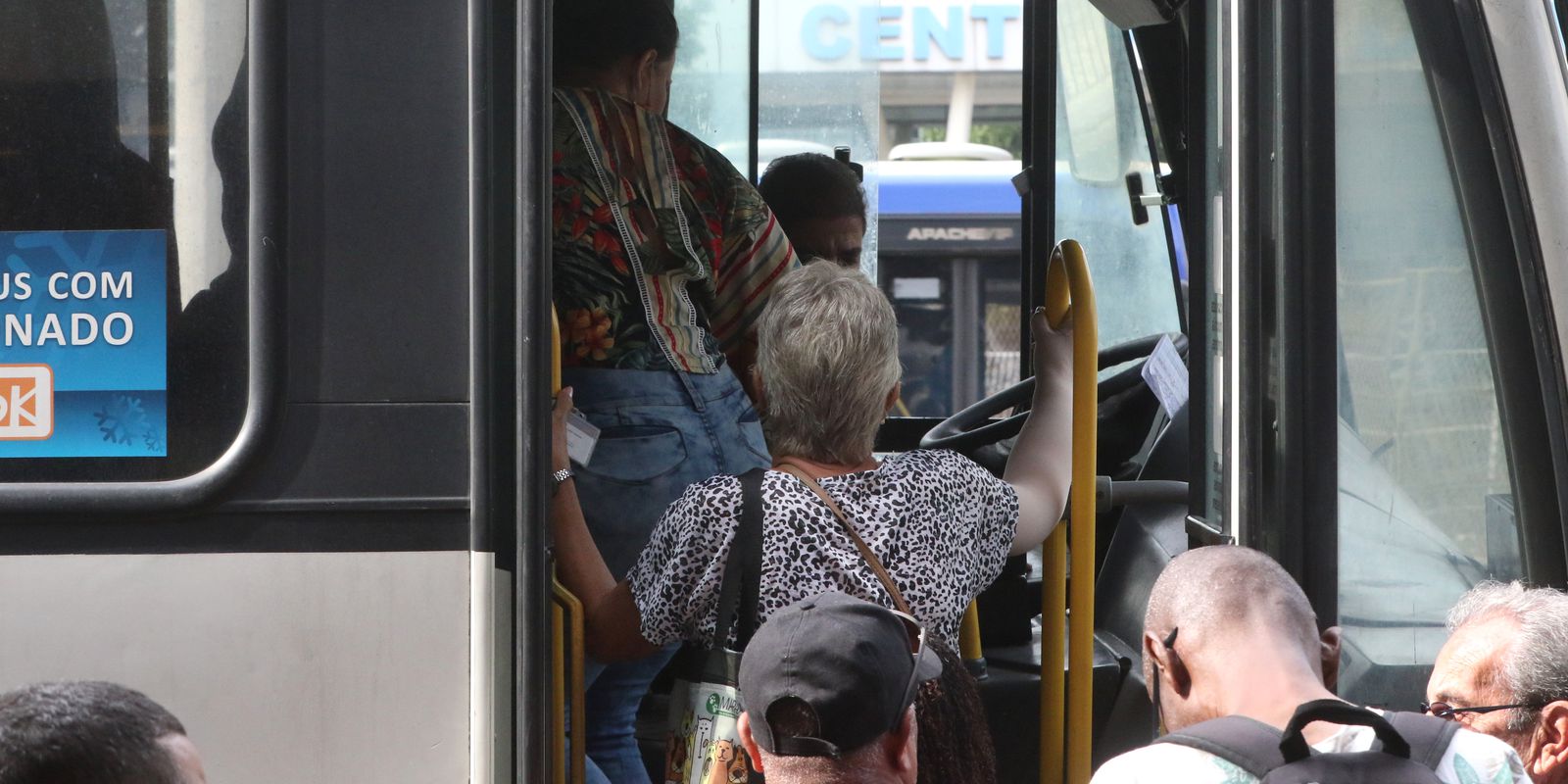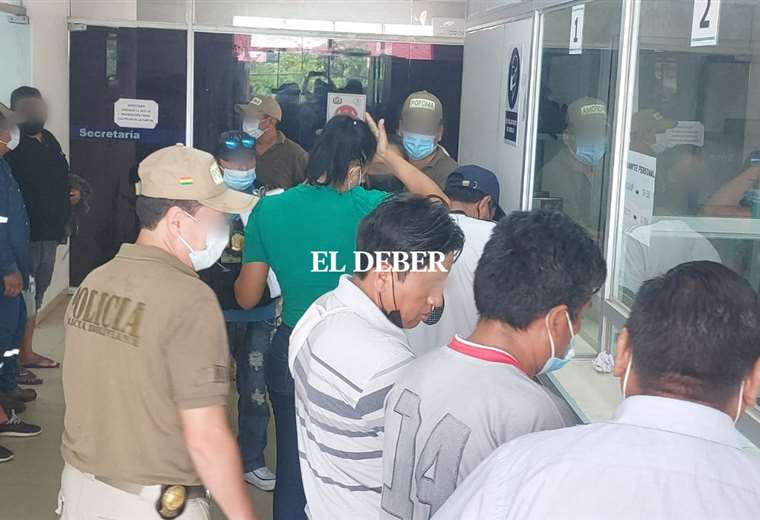The precarious situation of public transport in Rio de Janeiro becomes dramatic in the summer, with the lack of air conditioning in the urban bus fleet, when the temperature can exceed 40 degrees Celsius (°C) in the city.
The high number of complaints to the city hall proves the problem. In the last month alone, 5,241 complaints were recorded in the exclusive channel for records about buses without air conditioning, service launched at the beginning from November.
According to the Municipal Transport Secretariat (SMTR), since January, 770 fines have been applied for lack of air conditioning in collective vehicles, with inspection intensifying after the creation of the exclusive reporting channel.
The problem, however, persists. Student Naomi Toribio, 21, uses line 485 (Fundão – Ipanema) to go to the Federal University of Rio de Janeiro (UFRJ) and already recognizes the vehicles in the fleet, which is very small on the line.
“There is a bus with good air conditioning in the fleet and a bus that pretends to have air conditioning, but it doesn’t help anything and it’s even worse because the windows don’t open, so there’s an oven inside”.
The air conditioning of the fleet is an old promise from the city hall, it comes from 2012, and in early 2020 a new agreement was reached with the companies to secure the equipment in the vehicles.
During the most critical period of the covid-19 pandemic, in 2020 and 2021, buses were prohibited from turning on air conditioning, as a health prevention measure. However, the determination has been suspended for over a year.
According to the Public Ministry of the State of Rio de Janeiro (MPRJ), the issue has come and gone in court and the most recent determination extinguished the process, in view of an agreement signed by the bus companies with the city hall in May this year. .
“The 1st Public Prosecutor’s Office for Collective Guardianship of the Urbanistic Order of the Capital filed an appeal in October 2022, considering that the issue had not yet been resolved and that the court decision should be annulled, so that the air conditioning program could be continued. of the bus fleet. The Public Ministry’s appeal is still pending judgment by the Judiciary,” said the MPRJ.
The Union of Bus Companies of the City of Rio de Janeiro (Rio Ônibus) did not respond to the report’s question about the advancement of fleet air conditioning.
other problems
University student Naomi explains that the lack of air conditioning is just one of the problems she experiences on buses. For her, the worst of all is the low frequency and overcrowding of vehicles.
“I think the worst problem with 485 is its frequency, which is not enough to serve students, especially early in the morning. Sometimes we spend almost an hour waiting for the bus, because it takes a long time to pass and when it does, it’s so crowded that the driver doesn’t even stop at the stop. The 485 is also not available on the weekends and is only available in the morning and late afternoon, it is not available in the middle of the afternoon”.
Naomi also points out the condition of the vehicles, with almost all of them “literally falling apart”.
“It happens to break down halfway and have to stay in the middle of the Red Line [via expressa] waiting for the next pass. I’ve taken a bus with a broken baluster, with something loose, with a loose seat, I’ve seen cockroaches walking around inside the bus. Once it rained inside the bus because there was a hole in the roof. Buses with a hole in the floor are also quite common, with a window that doesn’t close or a window that doesn’t open”.
All these problems are also pointed out by the MPRJ. Promoter Rodrigo Terra, who works in the consumer area, recalls that for many years the agency has demanded improvements in the city’s public transport system.
According to him, several reasons have already been pointed out for suspending the concession contracts, with more than 200 lawsuits filed in court.
“The service is of poor quality, with the scrapping of the fleet, flat tire, cockroach infestation, steering bar with cracks, inoperative buzzer, a series of issues that would make it impossible for the collective to circulate. Another issue is the shortening of routes. The company decides to stop before the end of the determined section, other [linhas] they are extinguished and, suddenly, they are gone. Circulating also with a fleet below 80% of what is authorized, for example a line that circulates with three buses when it should circulate with ten buses”.
The prosecutor also points out the lack of transparency in the rendering of accounts by the concessionaires, attested by large auditing companies, which stated that it was not possible to evaluate the system with the data provided. According to him, these issues could lead to the expiry of the contracts, but the judicial agreement reached in May to regulate the form of remuneration for the companies suspended the other requests from the MPRJ.
“Buses carry 4 million users a day and if this service is lacking, it has a huge impact on the city. Then the composition was made in the expiry process for the form of remuneration. The concessionaire himself collected the tariff value and only informed the granting power, with those documents that are not reliable. In this composition, the collection of tariffs is done by the municipality itself, which is responsible for passing on the remuneration to the concessionaire, according to a series of factors that will influence the value. This is very good because it opens the black box, right?”
SMTR reported that it routinely inspects the state of conservation of the buses and that, in case of irregularities, “the consortium responsible is fined and the vehicles, depending on the condition, can be sealed”.
The secretariat also informed that it monitors the operation of the buses and certifies the mileage traveled through GPS. “Line lines that do not meet the minimum required mileage do not receive subsidy payments, as provided for in a clause in the court agreement signed between the City Hall, consortia and the State Public Prosecutor’s Office”.
Rio Ônibus did not return the contact.









